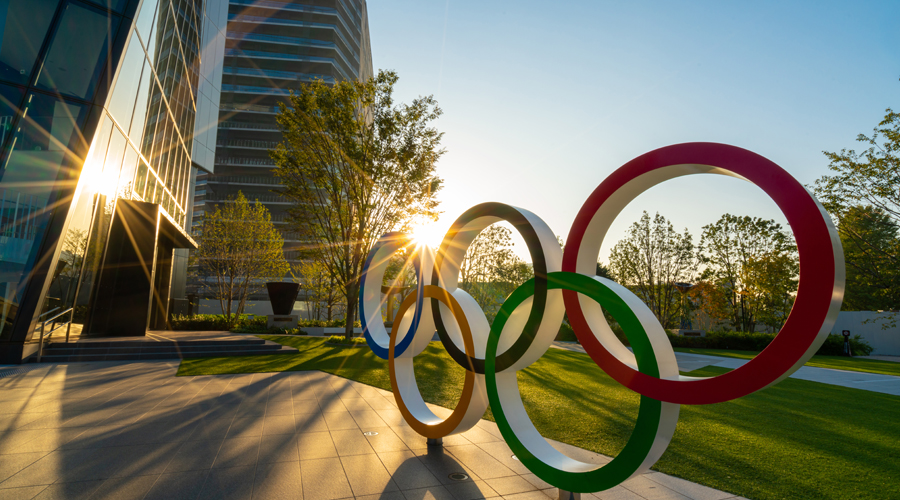International Olympic Committee (IOC) chief Thomas Bach appeared in public on Tuesday for the first time since arriving in Tokyo last week with the pandemic-postponed Olympics opening in just 10 days. Bach spent his first three days in isolation at the IOC's five-star hotel in central Tokyo.
His first stop was the headquarters of the organising committee to deliver a pep talk with the beleaguered games set to go ahead without fans in almost all venues. Organisers and the IOC decided last week to ban fans from all but a handful of outlying venues, a move that came after the Japanese government instituted a state of emergency in Tokyo forced by rising coronavirus cases. The state of emergency went into force on Monday and runs through August 22.
The state of emergency will be in effect throughout the entire duration of the Olympics, which open on July 23 and close on August 8. Its main impact is to push bars and restaurants to close early and stop selling alcohol, a move aimed at cutting down circulation on crowed trains.
"You have managed to make Tokyo the best-ever prepared city for the Olympic Games," Bach said in his opening remarks to organising committee president Seiko Hashimoto and CEO Toshiro Muto. "This is even more remarkable under the difficult circumstances we all have to face."
Bach also pointed out the urgency of getting ready with deadlines looming. "Now it's 10 days to go to the opening ceremony. That also means there's still a lot of work to do," Bach said.
The slip-up
Bach tripped over his words while addressing his Japanese hosts, referring to the Chinese people rather than Japanese people as he spoke. "Our common target is safe and secure games for everybody; for the athletes, for all the delegations, and most importantly also for the Chinese people -- Japanese people," Bach said, catching his mistake quickly.
Bach's comments in the briefing were interpreted from English to Japanese, but the slip was not included in the interpretations. Still, much of the Japanese media quickly reported it and there was backlash on social media. Bach's visit on Tuesday coincided with the official opening of the Olympic Village on Tokyo Bay. Organisers did not offer an immediate count of how many athletes were on hand.
Bach is scheduled to visit the Japanese city of Hiroshima on Friday in an effort to tie the Olympics to the city's effort to promote world peace. IOC Vice President John Coates it to visit Nagasaki the same day. Japan's Kyodo news has reported that a group in Hiroshima is opposing Bach's visit. A small group of protesters gathered Saturday outside Bach's hotel carrying placards that said he was unwelcome in Tokyo.
Bach and the IOC have been criticised for pressing ahead with the Olympics during the pandemic amid polls that show depending how the question is phrased that 50-80% oppose the Olympics taking place. The IOC gets almost 75% of its income from selling broadcast rights, and estimates suggest a cancellation could have endangered 3 billion to 4 billion in income. Japan has officially spent 15.4 billion on the Olympics, and government audits say it is much more. All but 6.7 billion is public money. The Olympics will involve 11,000 athletes entering Japan along with tens of thousands of others including officials, judges, media, and broadcasters.
Survey points at scepticism about Games
Bach might label Tokyo as the "best-ever prepared" host, but that isn't enough to chase away the scepticism among the public in Japan. According to a global survey by international market research company IPSOS, only 22 per cent in the country think the Games should be staged. People in South Korea are even less enthusiastic, with only 14 per cent in support of the mega event. IPSOS interviewed 19,510 adults in 28 countries between May 21 and June 4. The questions in the interview aimed to understand the level of support for the event which was postponed from 2020 to 2021 due to the coronavirus pandemic.











